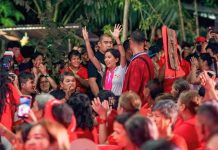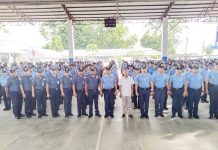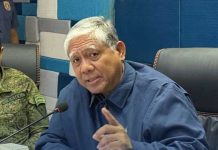
ILOILO City – “Let’s trust science and experts.” This was the appeal of the Philippine Society for Microbiology and Infectious Disease (PSMID) to vaccine-hesitant Ilonggos.
“We should trust medical experts who developed the vaccines. They devoted many years studying different infectious diseases,” stressed Dr. Yvette Silubrico, vice president of PSMID Western Visayas Chapter.
Medical experts from the PSMID-Western Visayas debunked myths that may have fueled public distrust to anti-coronavirus shots.
Silubrico cited misinformation on social media as one of the common reasons why people are shunning the idea of immunization.
“We are bombarded with so many information. Let’s take this as a challenge to filter the information nga mabasa naton,” Silubrico said during the forum “COVID-19 Vaccination: The What and Why” yesterday.
The awareness program was part of the city government’s comprehensive information dissemination campaign. Results of a recent immunization screening revealed that majority of Ilonggos are reluctant to get COVID-19 vaccines due to the potential side effects.
Of the 9,731 individuals asked to fill out vaccination consent forms, 6,863 or 71 percent were apprehensive of getting anti-coronavirus shots even if these were free. Only 29 percent were willing to be inoculated.
But having side effects after getting jabbed with anti-coronavirus shots is normal and only temporary, according to Dr. Ellamae Divinagracia, an infectious disease specialist from PSMID-WV.
“May mga side effects ka gid nga mabatyagan kay response na sang lawas mo sa vaccine. Anything nga ginsulod dira ma-react gid na ya ang imo immune system…pwede mahilanat ka or maka-experience sang headache pero these are temporary…like two days,” Divinagracia explained.
Another PSMID-WV infectious disease specialist, Dr. Ludovico Jurao, echoed Divinagracia.
He reiterated that all vaccines have side effects.
“Granting nga may adverse reaction gid man, as far as the vaccine at the moment is concern, ang claim naton is they prevent severe diseases,” Jurao said.
Jurao cited, for instance, the pandemic more than 100 years ago due to influenza.
“Influenza was a pandemic and so many people died. The vaccination process went into effect and now we are just living with influenza,” Jurao said.
The city government entered into a tripartite agreement with AstraZeneca and the national government for the advance procurement of 600,000 vials of AZD1222 Vaccine that could cover 300,000 city residents (the vaccination requires two doses).
The target number of persons for vaccination is 60 percent of the city’s total population of about 474,250.
AZD1222 Vaccine is made from a weakened version of a common cold virus (known as an adenovirus) from chimpanzees. It has been modified to look more like coronavirus – although it can’t cause illness.
When the vaccine is injected into a patient, it prompts the immune system to start making antibodies and primes it to attack coronavirus infection.
Last month, the Food and Drug Administration approved AstraZeneca’s coronavirus vaccine for emergency use.
According to Divinagracia, all COVID-19 vaccines with Emergency Use Authorization (EUA) are safe and effective.
She underscored that getting immunized against the viral illness “would not only protect us but would do same to other people, including family members.”
Jurao, on other hand, clarified that regardless of the efficacy rate of the vaccine as long as it does not fall below 50 percent, that vaccine is already good.
He explained that the vaccine efficacy rates vary depending on the kind of technology the manufacturers are using to create the vaccine.
“Lain-lain ang efficacy sang kada vaccines because lain-lain man ang system of manufacturing. Depende sa technology used to create the vaccine,” Jurao said.
Meantime, Divinagracia said that with or without the vaccine, the people must still continue observing minimum health protocols against COVID-19.
“Indi buot hambalon nga vaccinated na kita, kalimtan na ang pagsuksok sang facemask kag physical distancing,” she said./PN





